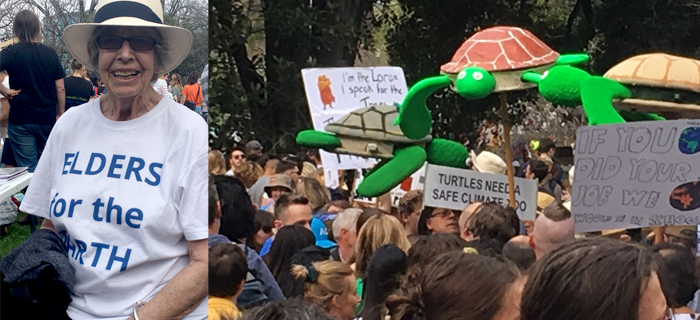Editorial: Donate your words
Corporate social responsibility

Image: Ali Morshedlou - Unsplash
I hadn’t planned on writing about social isolation and loneliness, but a friend sent me this link to an initiative by Cadbury Chocolate which shows how corporates can be both creative and socially responsible. The campaign is called ‘Donate your Words’ and it is designed to raise awareness of social isolation and loneliness. This in the light of recent Age UK research that has revealed that around 225,000 older people in the UK can spend a full week without speaking to anyone. The research also indicates that 1.4 million in the UK struggle with loneliness and that is most likely only the tip of the iceberg. A further UK study estimated that the total cost to employers of loneliness experienced by their employees was around $AUD 4.5 billion p.a. This manifests in such factors as absenteeism, caring, lost productivity and turnover (New Economics Foundation & The Co-Op 2017).

Image: Cadbury
The figures in Australia are not dissimilar with the Australian Institute of Health and Welfare reporting that 9.5% of Australians aged 15+ years report a lack of social support (Relationships Australia 2018). However, many researchers agree that it is under-reported. Social isolation and loneliness impact negatively on health and wellbeing in the form of premature death, poor mental, emotional and physical health, poor life satisfaction, poor sleep, higher blood pressure and poorer immune function. I’ve read that it can be as harmful as smoking 15 cigarettes a day.
For those of us desperately attempting to find that elusive work-life balance, it is easy to forget that after retirement, many people no longer have the social networks associated with work, school, children, sport, extra-curricular activities and so on. Add declining mobility, poor social skills, poor health, loss of a partner, living alone and lack of non-professional interests, and you have a confluence of factors that could very easily result in social isolation and loneliness.
I recently booked my car in for a service and was relieved to see that my mechanic was still there, although his business partner has retired since the last service. I’ve been mildly concerned for a little while about the retirement plans of my GP, dentist and mechanic - all of whom I’ve been frequenting for multiple decades. I ended up discussing this with my mechanic who assured me that he had “a couple of years left” in him yet and that his wife was urging him to make plans for staying connected and out of the house once he does retire. A wise woman indeed.
Some ways of staying connected include volunteering, joining shared interest groups, clubs such as Probus, education and learning, community projects, meetups and travel. And of course, pets are wonderful and affectionate companions that can help structure the day, encourage physical exercise, facilitate social interaction and reduce stress according to the research. There are many organisations such as ‘Save a Dog’ (they have cats too) and the RSPCA, with wonderful pets in need of a loving home.
Getting involved in a cause you believe in is another good way of staying connected and meeting people with similar interests.

Image: Marj Button of 'Elders for the Earth' at the Climate Rally in Melbourne
On the education front, the Master of Ageing subjects due to run in Term 4 beginning on Monday the 7th October are:
- Economics of Ageinghttps://handbook.unimelb.edu.au/2019/subjects/poph90258
- Mental Health and Ageing https://handbook.unimelb.edu.au/2019/subjects/psyt90092
- Technology and Ageing https://handbook.unimelb.edu.au/2019/subjects/poph90263
For anyone who’d like to find out more about ageing but are time limited, we run a MOOC ‘Rethinking Ageing, are we prepared to live longer?’ https://www.coursera.org/learn/ageing
[Source: Lena Gan, Course Coordinator Master of Ageing, Melbourne School of Population and Global Health, The University of Melbourne]